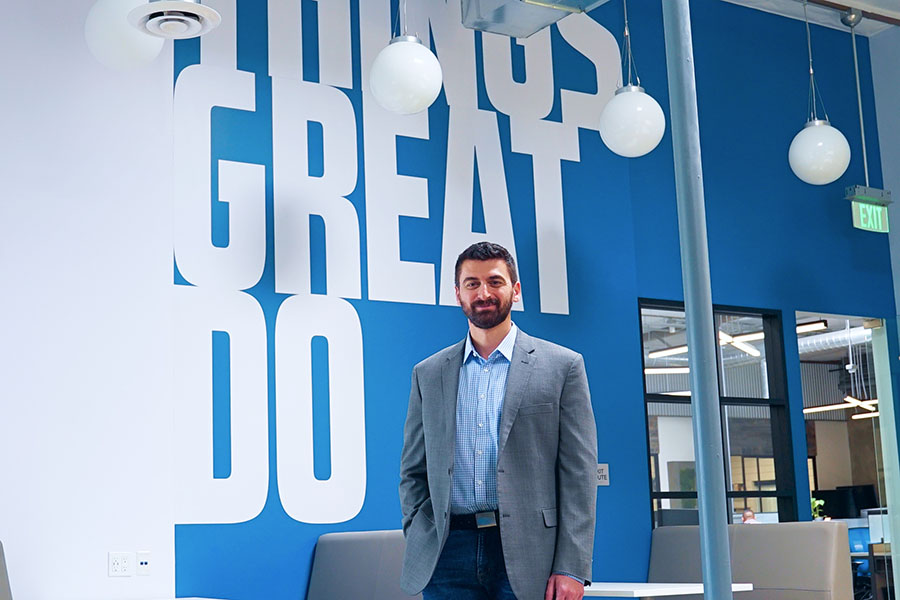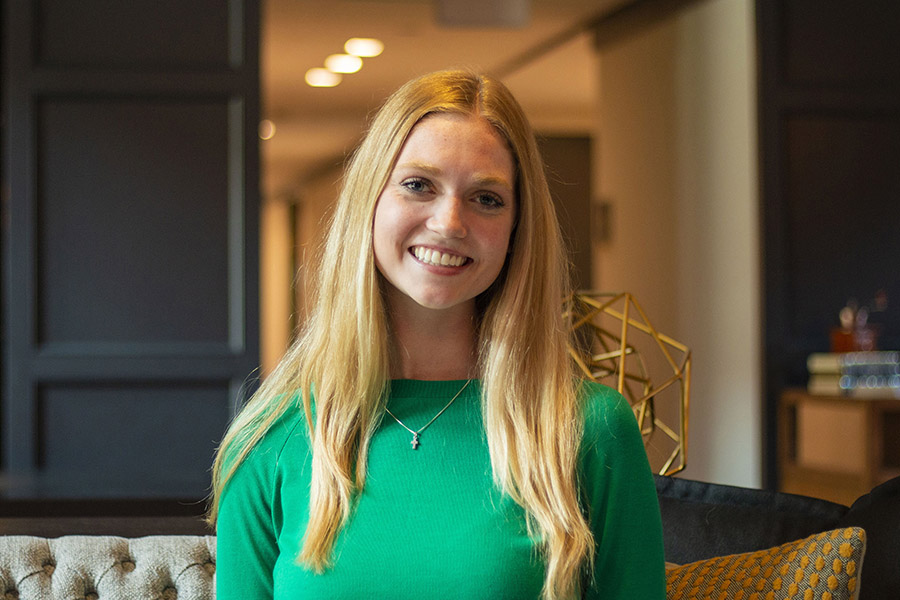Leaps of Faith - Alumna finds success across different industries

Kara Eschbach has made several leaps in her life and career, but the first step was her decision to attend Purdue.
“Initially I didn’t want to come to Purdue because all of my siblings were alums,” she says. “After visiting schools around the country, I made a trip with one of my brothers and fell in love with the campus. When I started to consider my options more seriously, Krannert’s excellence in analytical fields seemed like a great fit for me, and I liked that Purdue attracted and created humble, hard-working professionals.”
Once at Purdue, Eschbach majored in accounting, joined numerous student organizations and played varsity golf during the team’s NCAA tournament run. She earned Krannert Outstanding Senior honors and spoke at the 2007 winter commencement before joining Credit Suisse as an investment analyst prior to the financial meltdown that rocked Wall Street.
“When I started my career at Credit Suisse, most of my coworkers had gone to Ivy League schools, but I was better prepared for the technical aspects of finance,” Eschbach says. “It was an invaluable experience in how to think about business, how to be analytical and solve problems, and how to work in a high-pressure environment.”
Those skills came into play again when Eschbach left Wall Street in 2011 to co-found and launch Verily, a women’s magazine in a crowded, competitive demographic. Once again, she was up to the task.
“Purdue and Krannert prepared me to solve problems, think critically, and feel confident in figuring things out,” she says. “Not everyone can work through ambiguity or dig into a problem, but Purdue really nurtures that.
“Working as a generalist at a private equity fund honed my ability to think about what makes different types of businesses work, so I could apply that same analysis to publishing. The biggest thing was a desire to take a risk on something that we seemed to have a unique ability to execute on.”
Following a successful run, Verily ceased publication in 2018, after which Eschbach joined Page Vault as vice president of marketing. The software firm provides full-page screen captures and other on-demand digital publishing services for content producers. In addition to big-picture strategies to better position the company’s messaging and branding, her job relies increasingly on data analysis.
“For example, I can combine qualitative information about our customers — their industries and functions, how they heard about us — and map that against purchasing habits to see which industries or marketing channels are producing the best types of customers,” Eschbach says. “I can then formulate new ideas to reach more of them or find adjacent markets. Knowing how to answer those questions with data and not just gut instinct makes you especially valuable to an organization.”
Current students would also do well to follow her advice for making the most of their Purdue experience.
“I encourage them to get involved in student organizations and do things that are challenging,” Eschbach says. “This is the time to dabble in new interests, take a class that seems interesting but not relevant to your major, or try an initiative that sounds risky. Having experiences outside of the classroom will make you stand out to employers and foster a mindset that will serve you well throughout your career.”




